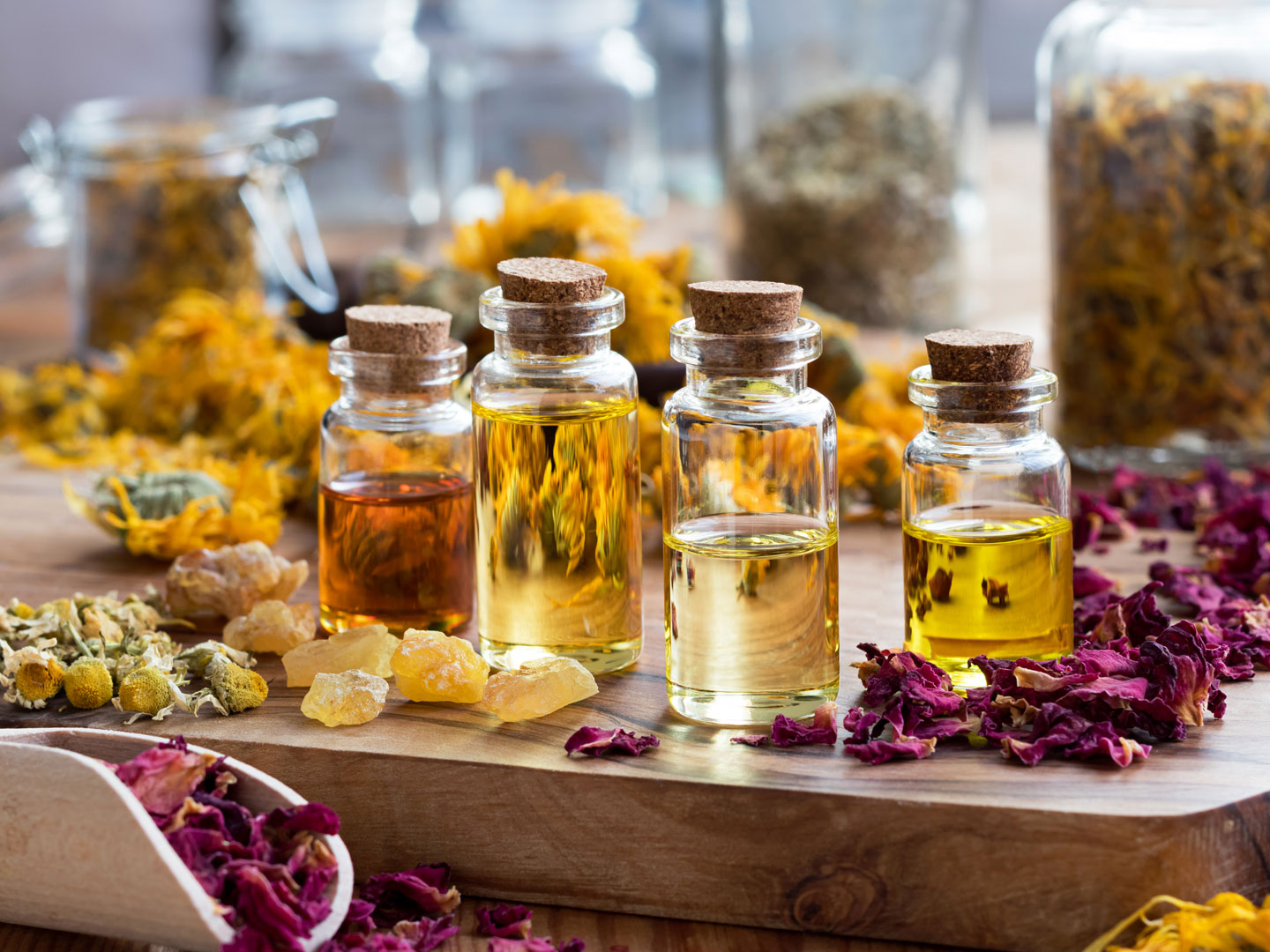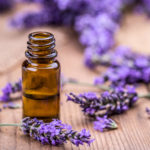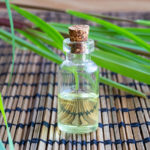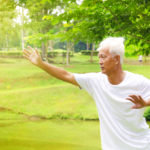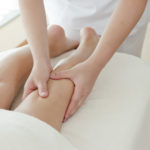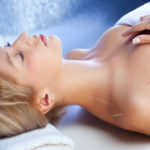Aromatherapy
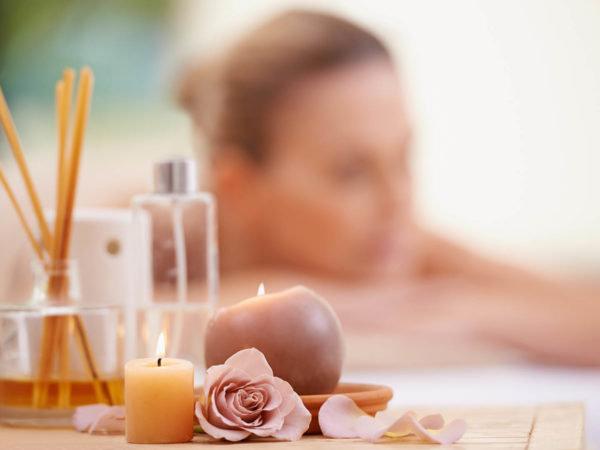
What is aromatherapy?
Aromatherapy is the use of essential oils from flowers, leaves, fruits, barks or roots to affect physical and mental health. The scents from these oils can have a powerful influence on mood and have also been studied as treatment for some medical conditions.
While the pleasant, uplifting effects of some odors have been known for centuries, modern, condition-specific aromatherapy based on essential oils usually is traced back to the work of French chemist Rene-Maurice Gattefosse in the late 1920s. Today, in France and Japan, medical aromatherapy is an established field that treats medical conditions such as diabetes and seizure disorders. In the United States, aromatherapy is mainly associated with the spa and beauty industries although it also is used as supportive care in an effort to improve quality of life and reduce stress and anxiety among cancer patients. Here, aromatherapy may be combined with other complementary treatments such as massage therapy and acupuncture.
Aromatherapists dilute essential oils with carrier oils and apply them to the skin or put them in diffusers so that clients can inhale the vapors.
Aromatherapy’s effects may stem from the response to scents of smell receptors in the nose that send chemical messages through nerves to the brain’s limbic system. This, according to practitioners, can lead to emotional and physiological effects, which in turn can influence the body’s immune, circulatory, respiratory and other systems.
What conditions is aromatherapy used for?
An expanding body of research is exploring the questions of whether aromatherapy can improve sleep, ease pain and anxiety, reduce congestion of colds and flu, relieve constipation, reduce post-operative nausea and even help grow hair. In most cases, further investigation will be needed before doctors in the United States are convinced that aromatherapy can influence health, but good evidence already exists showing that certain scents can help induce relaxation and improve sleep. For example:
- A 1994 study at New York’s Memorial Sloan-Kettering Cancer Center found that the vanilla-like aroma of heliotropin significantly reduced anxiety in patients undergoing MRI scans.
- In England in 2002, researchers found that applying lemon balm oil to the faces and arms of patients with severe dementia reduced their agitation by 35 percent.
- At Wesleyan University in Connecticut, researchers found that the scent of lavender increased deep, restful sleep for both men and women; a Korean study published in 2006 came to the same conclusion (but included only women).
- A Scottish study showed that a combination of cedarwood, lavender, rosemary, and thyme oils promoted hair growth among patients with alopecia areata, an autoimmune disorder that causes hair to fall out.
However, in April 2008, researchers at Ohio State University published a long-awaited study funded by the National Center for Complementary and Alternative Medicine. The investigators examined the effects of aromatherapy on immune responses, wound healing, and pain control, but found no improvement among volunteers exposed to lemon and lavender scents. Analysis of blood samples showed that the scents had no effect on biochemical markers of immune and endocrine status, stress, pain control, and wound healing. The study did show that lemon oil (but not lavender oil) improved mood. Although this was one of the most comprehensive studies to date of aromatherapy’s effects on health, it is unlikely to be the last word on the subject. Despite the findings, one of the Ohio State researchers said that if these oils make an individual feel better, there’s no reliable way to disprove that they have had a positive impact on that person’s health.
What should one expect on a visit to a practitioner of aromatherapy?
Aromatherapy has various modes of administration. You can inhale essential oils indirectly from a room diffuser, place drops of it nearby or inhale the scents from an individual inhaler. Aromatherapists may prepare a custom formulation of oils for their clients’ home use. Beyond that, aromatherapy may be used in conjunction with massage (the essential oils are added to the oil used by the massage therapist) or by other licensed health professionals including acupuncturists, registered nurses and naturopaths during treatment. While some essential oils may be used in an effort to prevent or to promote healing of specific conditions, the choice of oils and the ways they’re combined may vary depending on the experience and training of the aromatherapist.
Are there any side effects or conditions where aromatherapy should be avoided?
Safety testing has revealed few negative effects when essential oils are used as directed. However, if these oils come into contact with the skin for long periods of time, allergic reactions or skin irritation can develop. Use of citrus or other oils prior to sun exposure can lead tosun sensitivity. Lavender and tea tree oils have effects similar to estrogen and can also block or decrease the effect of androgens (male sex hormones) and should be avoided by individuals with tumors that need estrogen to grow. One study found that long term application of lavender and tea tree oils to the skin led to breast enlargement in boys who had not yet reached puberty.
A purported aromatherapy treatment to avoid is the “Raindrop Therapy” for scoliosis. Here, therapists use some undiluted essential oils directly on the skin, a method contrary to the practice of qualified aromatherapists who always use diluted oils. The National Association of Holistic Aromatherapists, the organization that certifies aromatherapists in the United States describes “Raindrop therapy” as unsubstantiated and notes that the practice has been banned in Norway. NAHA also warns that any aromatherapist who claims to diagnose and treat scoliosis or any other medical condition without referring the client to a medical or qualified health care practitioner may be practicing medicine without a license.
Is there a governing body that oversees or credentials practioners in aromatherapy?
In the U.S. no license is required to practice aromatherapy. Treatment is not regulated by state law, but most qualified aromatherapists are also licensed health care professionals such as massage therapists, registered nurses, acupuncturists and naturopaths. The National Association for Holistic Aromatherapy (NAHA) and the Alliance of International Aromatherapists, both have national educational standards for aromatherapists, and NAHA has approved certificate programs at a number of schools (listed on the website). Some aromatherapy courses for healthcare providers offer medical credit hours. The Canadian Federation of Aromatherapists certifies aromatherapists in Canada. For a list of international aromatherapy programs see the International Federation of Aromatherapists.
How does one get in touch with a practitioner of aromatherapy?
According to NAHA, most qualified aromatherapists incorporate their aromatherapy training with another profession in which they are licensed, for example, massage therapist, registered nurse, licensed acupuncturist, medical doctor, naturopath physician. Although anyone can hang up a sign announcing the practice of aromatherapy, NAHA notes that practitioners who apply essential oils to the body need a professional license in another field, massage therapy, for instance.
When looking for an aromatherapist, you might ask a licensed massage therapist for a recommendation. Make an effort to find one who is qualified (check to make sure the therapist has completed approved certification programs).
What is Dr. Weil’s view of aromatherapy?
Dr. Weil believes that physicians and researchers in the United States have only a primitive understanding of aromatherapy’s potential to affect health, which limits the use of aromatherapy as an adjunct to medical treatment. But he also warns consumers against accepting dubious claims that aromatherapy can heal everything from acne to yeast infections, and he is concerned about some of the questionable aromatherapy products on the market, ranging from air purifiers to vacuum cleaner sachets. He notes that aromatherapy candles made from paraffin can emit toxins when burned and while he does consider candles made of soy wax healthier, he still regards them as indoor pollutants.
Because the U.S. Food and Drug Administration (FDA) doesn’t regulate essential oils, Dr. Weil suggests that when buying aromatherapy devices and oils for home use, do some research first. Learn the botanical name of the oil you want. For example, not all lavender promotes relaxation: you want Lavandula angustifolia, not Lavandula latifolia, which is an expectorant, not a sedative. In addition, make an effort to learn the country of origin (Dr. Weil prefers European imports) and whether or not the manufacturer regularly tests its oils for purity and protects them from oxidation, which can change their composition and make them irritating to the skin. To find high-quality oils, shop at natural food stores or buy from suppliers to professional aromatherapists.
Overall, Dr. Weil feels that if aromatherapy makes you feel better, you should by all means use it, but emphasizes the importance of making sure that your aromatherapist is qualified.


